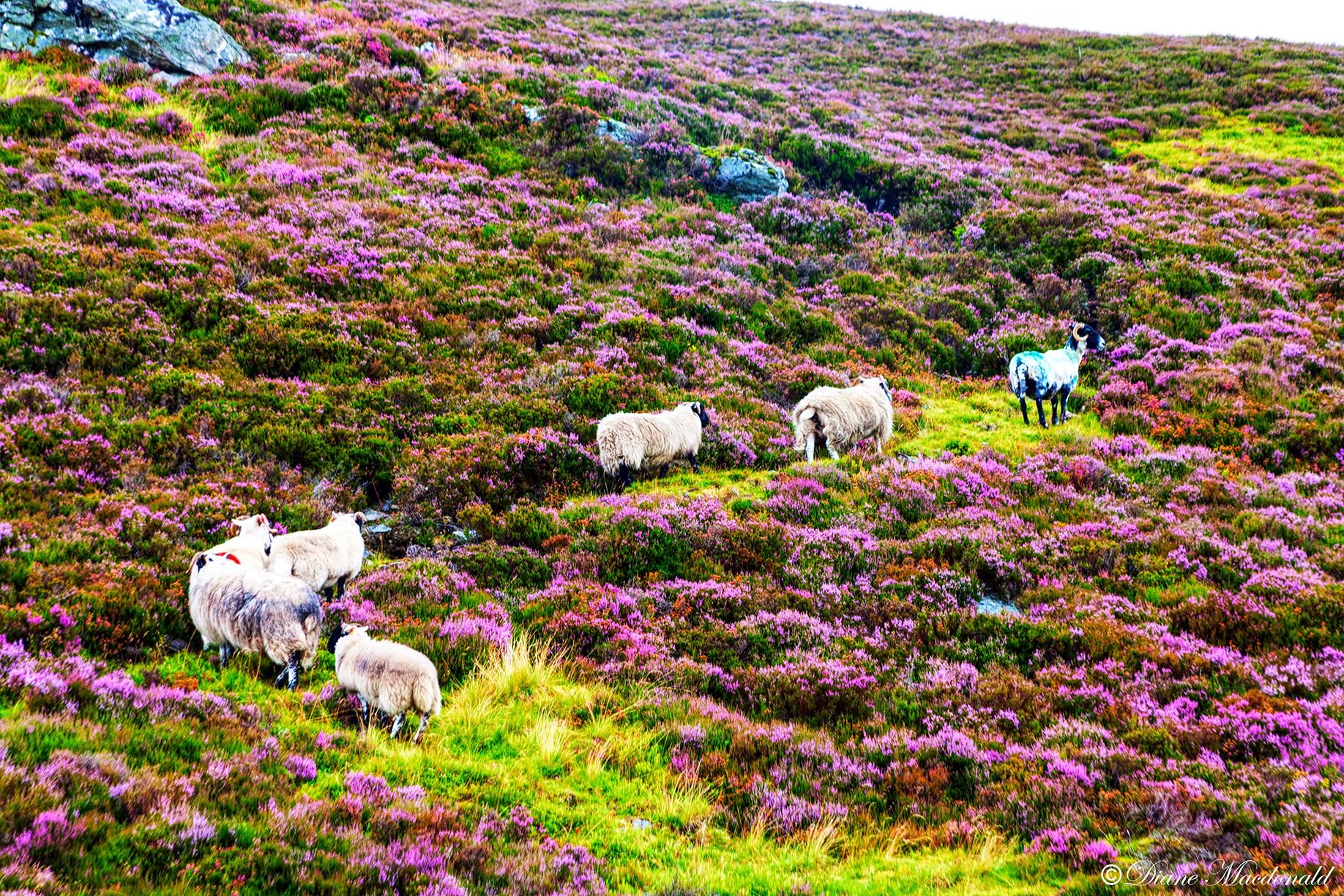DON'T COMPARE YOURSELF TO OTHER PHOTOGRAPHERS!
Don't follow like sheep. You may come to a dead end!

Image ©Diane Macdonald. All Rights Reserved.
Click on the image to view full screen!
My stock image of this shot can be licensed via Getty Images here.
| Camera | Canon EOS 5D |
| Lens | EF28-135mm f/3.5-5.6 IS USM |
| Exposure | 1/50 sec; f/9; ISO 200 |
| Location | Cairngorms, Scotland |
| Post-processing | Adobe Photoshop® CC 2017, Adobe Camera Raw, Nik Silver Efexx Pro |
I have often been asked to list the most important lessons I have learned in my many years of creating photographs (the last 24 years as a professional photographer.) So, I have made my first list of some of the things that have been the most important to me. (I will add other lists, as I go along.) I would not have agreed with some of the things on this list many years ago, so your list may well be quite different.
- Don't compare yourself to other photographers.
- Love what you do.
- Experiment with different styles of photography.
- Your photographs tell more about you than about the scene.
- Don't be an equipment snob.
- Focus more at first on good composition than on technical skills.
- Think of post-processing as the digital darkroom.
- Shoot what is in your own neighborhood.
- Flip the camera and take vertical shots.
- Even great photographers are remembered for only 1 or two GREAT shots in a lifetime.
- Avoid the SVS (Standard Vacation Shots) as much as possible.
- Use cloudy and rainy days to your advantage.
- Get up early.
- Capture city shots just after sundown.
- Travel light with camera gear.
- Don't be afraid to include people in travel shots.
- Photograph architecture with the full sun on the building front.
- Experiment with all kinds of software.
- Use on-camera flash on sunny days.
- Take many photos of one thing that excites you, and edit.
- Submit images with strong concepts to stock agencies.
All I am saying is that with hindsight, these have been the most important factors for me personally as a photographer to learn. I will deal with each item on the list in separate posts, so today I am covering the first item, which I believe to the one of the most important things I have learned along the way.
Don't compare yourself to other photographers!
I will not Reason and Compare: my business is to Create. - William Blake (1757–1827)
Compare your photographs with the ones you shot last week or last year, not with the ones that other photographers are shooting.
Photography is very subjective, so you may see some photographers who have thousands of followers, but who appear to have very average work in your eyes. That is because photography is subjective! You may also see some photographers who have way above average work (in your eyes), but they are struggling to achieve a few hundred followers. Photography is very subjective.
Social media has been largely responsible for our feelings of inadequacy in photography. We see an abundance of over-saturated and over-vignetted images and believe that we have to emulate that work in order for our work to be considered good. If all you ever want to do with your work is show it on social media as eye-candy, then OK. If you have sights on selling those images as large prints though, beware! There may be so much banding and color fringing in your work, that the largest print you may be able to sell is an 8x10!
We see the Follows and Upvotes and believe that we have to copy those styles in order to be successful. Not so. What we need to do is be true to ourselves, and that may involve styles that are way different from the ones that we see flooding our Steemit Feeds.
Years before social media became central to our lives, I learned from old photography pros that we should not be looking at the photography of others to give us inspiration. Instead, we should be spending time in art galleries studying the work of the old masters. What made their work successful? Was it the composition, lighting, subject matter, or all of that? When you do visit an art gallery, you are at once reminded that there are many, many styles of painting that are considered good! Not all paintings are in dark or vibrant colors. Not all paintings are what you might call good, but others may think they are exquisite!
So, in your own opinion (the one that really counts), are your photographs better now than they once were? If so, just imagine what you will be thinking next year, or the year after! Keep up the good work and don't compare yourself to other photographers!
